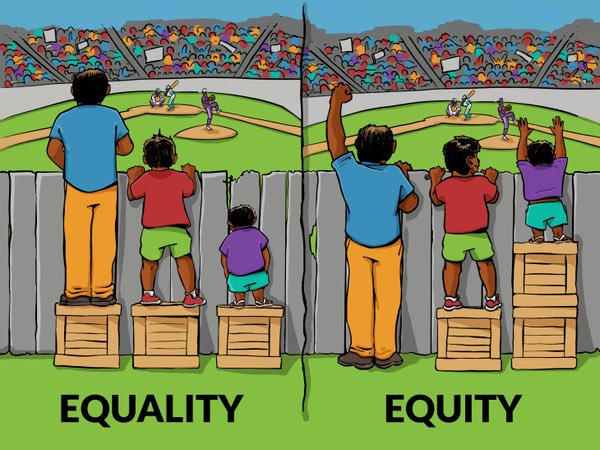“I do not care about inequality, because I’m not jealous, I care about poverty” (Pedro Schwartz).
“Liberté, Egalité, Fraternité”. This is the motto of France and the Republic of Haiti. It was created during the French Revolution in 1789 and has been the official motto since 1848. The three terms sound important and interesting, and are so in fact, but in the present article the idea is to concentrate on “Égalité” and the doctrine defending the same concept. Egalitarianism is a philosophical, political current that defends equality above all else. Besides; is it actually ethical?
When was the concept born?
This concept was first born in the Renaissance:
“Indeed, in the 17th thesis of his
1517 “disputatio” against scholastic theology, Luther attacks the hierarchical
system of the Middle Ages: He tells us that man by nature can not want God to
be God, but to be only God himself.” (Molina: 2016).
Man recognizes himself as supreme authority, as the ruler of the universe. How does that derive from egalitarianism? Well, indeed in the old system, man was a creature of God. There was a clear cosmic hierarchy. In the new system, man is God and “hierarchy” can only exist from man downwards. Man is the ruler of the universe, but no one is more than another, all are equal since being born.
An example of injustice

This photo defines perfectly what egalitarianism is: Two pictures in one. On the left, equality (egalitarianism), on the right justice (equity). There is an important distinction to make. Governments do usually hide under the idea of equality, making justice just a chimera.
Why is it born?
This egalitarianist injustice phenomenon occurs due to a psychological human phenomenon, namely the “Procrustean syndrome:”
“Procrustean syndrome defines those who, when overwhelmed by the talents of others, belittle them. Fear leads them to live in an enduring mediocrity where they cannot develop or let others do it“(Ramirez: 2017).
The theory of egalitarianism grows out of this syndrome. The people who cannot develop themselves, want to prevent others from doing so, and impose equality, creating a situation by which those with less resources cannot flourish.
Nietzsche didn´t like it either
Nietzsche speaks in his philosophy about the “Übermensch”, who has grown out of ordinary people. He says that egalitarianism is only about a unique thinking which is adopted in a submissive manner and through gregaristic egalitarianism. To sum up, something like a deaf dictatorship (Echegollen: 1997). It is a tyranny of free thought.
A simplified example
It is already known that football players earn a large amount of money. The better the player is the more he/ she earns. On the other hand, there are jobs like doctors, teachers, dishwashers and a long etc. who are getting a lot less money than a footballer does and, thus, they are paying fewer taxes than footballers. By law, the more you win, the more taxes you pay.
If one applied the egalitarian theory here, the mentioned workers and the football players should pay the same. Whether it would be fair is not the question. Most importantly is to take the idea that Egalitarianism is in clear conflict with law and thus again with justice.
Equality is a populistic concept
To conclude, yes. Egalitarianism is just the perfect excuse for governments to legitimize injustice occurring. They hide under this idea to justify inequality supporting themselves on the, often existing, ignorance of the population about the meaning. Equality is a populistic concept, instrumentalised by governments to shield themselves from those who trouble and complain about state men and disequilibirum. Then, those state men make an incredible appearance in the news claiming a change for equality. And yes, they are not lying, they will search for equality. But as said throughout this article, it is not precisely what we think.
“Liberté, Egalité, Fraternité”. It is easy to scream this expression out loud, but you have to first take care of understanding it, and reaching the idea that this “Egalite” is actually something totally different from what “Liberté” turns out to be. I cannot end my text better than Moncada:
“Against the harmful Procrustean syndrome, freedom” (Moncada: 2017).
